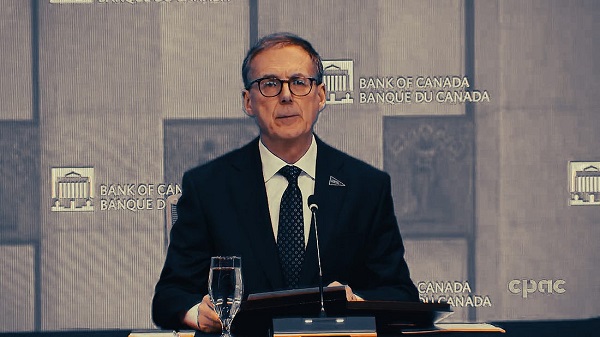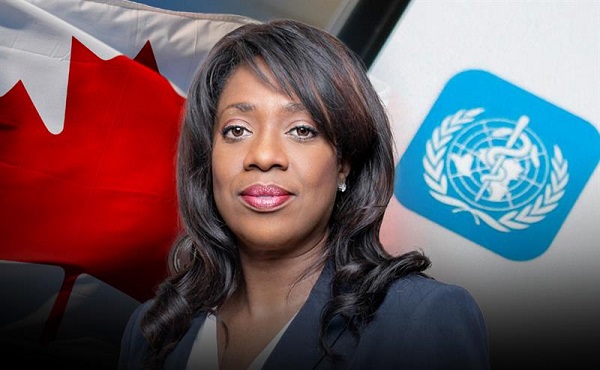International
Breaking: ‘Catch This Fascist’: Radicalized Utah Suspect Arrested in Charlie Kirk Assassination, Officials Say

Utah’s governor and FBI officials this morning announced the arrest of 22-year-old Tyler Robinson of Utah — reportedly a politically radicalized young man who viewed his target, Charlie Kirk, as “full of hate” — in the assassination of Kirk, a close ally of President Donald Trump, in a daylight shooting on a Utah campus Wednesday that has shocked an already deeply divided nation.
The assassination of Kirk echoes the attempt on Trump’s life during his campaign rally in Pennsylvania in July 2025, when 20-year-old Matthew Crooks opened fire from a roof, grazing Trump’s ear and killing one bystander before Crooks was shot dead by law enforcement.
Utah Governor Spencer Cox said investigators were tipped off when a family member of Robinson confided to a friend that Robinson had mentioned Kirk at a family dinner, saying, “Charlie Kirk was coming to UVU” and that Kirk was “full of hate and spreading hate.” The friend alerted the Washington County Sheriff’s Office, which relayed the information to Utah County and the FBI.
Investigators confirmed Robinson’s gray Dodge Challenger was captured on campus video at 8:29 a.m. on September 10. His roommate later showed agents Discord messages in which Robinson allegedly described stashing a rifle at a “drop point,” wrapping it in a towel, and returning to watch the area. Messages also referred to “engraving bullets,” changing outfits, and the rifle being “unique.”
Officials said they later discovered a bolt-action rifle wrapped in a dark-colored towel near the UVU campus. “The rifle was determined to be a Mauser Model 98 bolt-action with a scope mounted on top,” Cox said. “Inscriptions had been engraved on the casings.”
According to investigators, Cox confirmed, one fired casing read: “Hey, fascist, catch this.” Another unfired casing read: “If you read this, you are gay LMAO.”
“We are indebted to law enforcement across the state who worked seamlessly together,” Cox said.
More to come.
The Bureau is a reader-supported publication.
To receive new posts and support my work, consider becoming a free or paid subscriber.
Crime
Canada Seizes 4,300 Litres of Chinese Drug Precursors Amid Trump’s Tariff Pressure Over Fentanyl Flows

In what appears to be the second-largest Chinese precursor-chemical seizure in British Columbia in the past decade, Canadian border and police officials announced they intercepted more than 4,300 litres of chemicals used to manufacture fentanyl and other synthetic drugs at a notoriously troubled port in Delta, B.C.
The announcement of a seizure that occurred in May 2025 comes amid President Donald Trump’s continuing pressure on Ottawa to crack down on fentanyl trafficking in the province — which U.S. officials say has become a key production and shipment point for Chinese and Mexican traffickers.
The seizure — announced jointly by the Canada Border Services Agency (CBSA) and the RCMP — underscores the scale and persistence of global trafficking networks funnelling illicit materials into Canada’s drug markets.
According to the agencies, border officers examined two marine containers that arrived from China in mid-May, both bound for Calgary, Alberta. Acting on intelligence developed by CBSA’s Pacific Region, officers discovered 3,600 litres of 1,4 Butanediol, a key ingredient for producing GHB, often known as the “date-rape drug”; 500 litres of Propionyl Chloride, a chemical precursor used to synthesize fentanyl; and 200 litres of Gamma Butyrolactone (GBL), another controlled intoxicant.
The chemicals were concealed inside 60 clear jugs and 20 blue drums within the containers. Investigators believe the shipment was intended for use in clandestine drug laboratories. The RCMP confirmed that an investigation into the importation network remains ongoing.
The seizure comes amid growing concern about Canada’s port security, particularly in Metro Vancouver, where experts and local officials say criminal networks are exploiting gaps in federal enforcement.
The Delta seizure follows a series of major CBSA operations targeting precursor chemicals at Pacific ports. In May 2022, CBSA officers in the Metro Vancouver District examined a container from China declared as “toys” and discovered 1,133 kilograms of the fentanyl-precursor chemical Propionyl Chloride, with the potential to produce more than a billion doses of fentanyl.
Public Safety Canada also reported that in the first half of 2021, CBSA seized more than 5,000 kilograms of precursor chemicals, compared with just 512 kilograms in 2020 — reflecting what officials called a “dramatic escalation” in attempts to smuggle fentanyl inputs into the country.
In 2023, the City of Delta released a report highlighting major vulnerabilities at port terminal facilities, warning that there is “literally no downside” for organized criminals to infiltrate port operations. The report noted that British Columbia’s provincial threat assessment rated ports as highly susceptible to corruption and organized-crime infiltration.
At the time, Delta Mayor George Harvie called the lack of a dedicated national port-policing force “a threat to national security.” In comments to the Canadian Press, Harvie said that while Canada’s ports fall under federal jurisdiction, the “total absence of uniformed police at the facilities makes them obvious targets for criminal elements — from Mexican drug cartels to biker gangs.”
“We’re witnessing a relentless flow of illegal drugs, weapons and contraband into Canada through our ports, and that threatens our national security,” Harvie said.
The Port of Vancouver complex, which includes major terminals in Delta, Surrey, and Vancouver, handles roughly three million containers annually, with millions more expected as port expansion plans move forward.
The Delta report reiterated how difficult it has become to police these sprawling operations since the Ports Canada Police were disbanded in 1997. More than a quarter-century later, Harvie said, the consequences of that decision are now “alarmingly clear.”
The CBSA announcement today comes as U.S. President Donald Trump has imposed tariffs on Canadian exports, accusing Ottawa of failing to interdict the flow of fentanyl and precursor chemicals trafficked through British Columbia ports. Washington has repeatedly pressed Canada to strengthen port enforcement and anti-money-laundering controls, citing the West Coast’s role in China- and Mexico-linked trafficking networks.
Simultaneously, in trade negotiations with Beijing, Mr. Trump announced a reduction in tariffs tied to the fentanyl supply chain — raising concern that Washington has eased pressure on China, the primary source of finished fentanyl now responsible for hundreds of thousands of overdose deaths across North America.
Subscribe for free to receive new posts and support my work.
For the full experience, please upgrade your subscription and support a public interest startup.
We break international stories and this requires elite expertise, time and legal costs.
Business
“We have a deal”: Trump, Xi strike breakthrough on trade and fentanyl

President Trump declared “we have a deal” Thursday after meeting with Chinese President Xi Jinping in South Korea, describing their nearly two-hour summit as “a 12 out of 10.” Speaking aboard Air Force One, Trump told reporters the two leaders reached a sweeping agreement to stabilize trade relations and address the deadly fentanyl crisis. “We have a deal. Now, every year we will renegotiate the deal,” Trump said. “But I think the deal will go on for a long time.”
According to Trump, Xi agreed to suspend for one year China’s export restrictions on products made with rare-earth and critical minerals — materials essential to the production of semiconductors, batteries, and high-tech magnets. “There’s no roadblock at all on rare earth,” he said. “It’s a one-year deal that I think will be very routinely extended.” In exchange, Trump said the U.S. would lower the average tariff rate on Chinese imports from 57.6% to 47.6%. Trump emphasized that Xi also committed to intensifying China’s crackdown on fentanyl exports, which have been a major driver of overdose deaths in the United States. “We agreed he’s going to work very hard to stop the flow,” Trump said. “I think you’re going to see a big difference.”
Beijing also pledged to resume “tremendous” purchases of American soybeans, reversing its earlier retaliatory halt. In a Truth Social post later Thursday, Trump said China had additionally agreed to begin purchasing U.S. oil and gas, noting that “a very large-scale transaction may take place concerning the purchase of oil and gas from the Great State of Alaska.” The president confirmed that Taiwan was not discussed during the meeting but said both sides talked about working together to bring an end to the war in Ukraine. “We didn’t really discuss the Russian oil,” he added. “We discussed working together to see if we can get that war finished.”
The meeting, held at a South Korean air base, marked the first in-person exchange between Trump and Xi since his return to the White House. The two leaders greeted each other warmly, with Xi telling Trump, “Great pleasure to see you again.” Xi praised Trump’s leadership, saying, “China’s development goes hand in hand with your vision to make America great again,” and added that the two nations “are fully able to help each other succeed and prosper together.” Much of Thursday’s agreement builds upon a framework negotiated earlier this month in Kuala Lumpur between U.S. and Chinese trade teams.
Trump said he plans to visit China in April, calling the meeting “amazing” and “an outstanding group of decisions.” He did not say whether the pending TikTok deal was discussed. The renewed cooperation on fentanyl follows years of tension over China’s role in the U.S. opioid crisis. The CDC reports the drug has killed nearly 330,000 Americans in the past five years — roughly one in every 1,000 people. Trump has long pressed Beijing to stop the export of precursor chemicals used to make fentanyl, arguing the problem is both moral and economic. “They make $100 million selling fentanyl into our country,” Trump said last week. “They lose $100 billion with the 20% tariff. It’s not a good business proposition.”
Trump left Thursday’s summit expressing confidence that the new arrangement marked a major step forward. “On the scale of 0 to 10, with 10 being the best, I would say the meeting was a 12,” he said. “It was an amazing meeting — and I think this deal will go on for a long time.”
-

 Business2 days ago
Business2 days agoCanada heading into economic turbulence: The USMCA is finished and Canadian elbows may have started the real fight
-

 Internet2 days ago
Internet2 days agoMusk launches Grokipedia to break Wikipedia’s information monopoly
-

 Business2 days ago
Business2 days agoBill Gates walks away from the climate cult
-

 National1 day ago
National1 day agoCanadian MPs order ethics investigation into Mark Carney’s corporate interests
-

 National1 day ago
National1 day agoCanada’s NDP is now calling women ‘non-males’
-

 Business1 day ago
Business1 day agoFord’s Liquor War Trades Economic Freedom For Political Theatre
-

 Banks1 day ago
Banks1 day agoBank of Canada Cuts Rates to 2.25%, Warns of Structural Economic Damage
-

 Health1 day ago
Health1 day agoLeslyn Lewis urges Canadians to fight WHO pandemic treaty before it’s legally binding










